Selected Verses from The Agni Purana
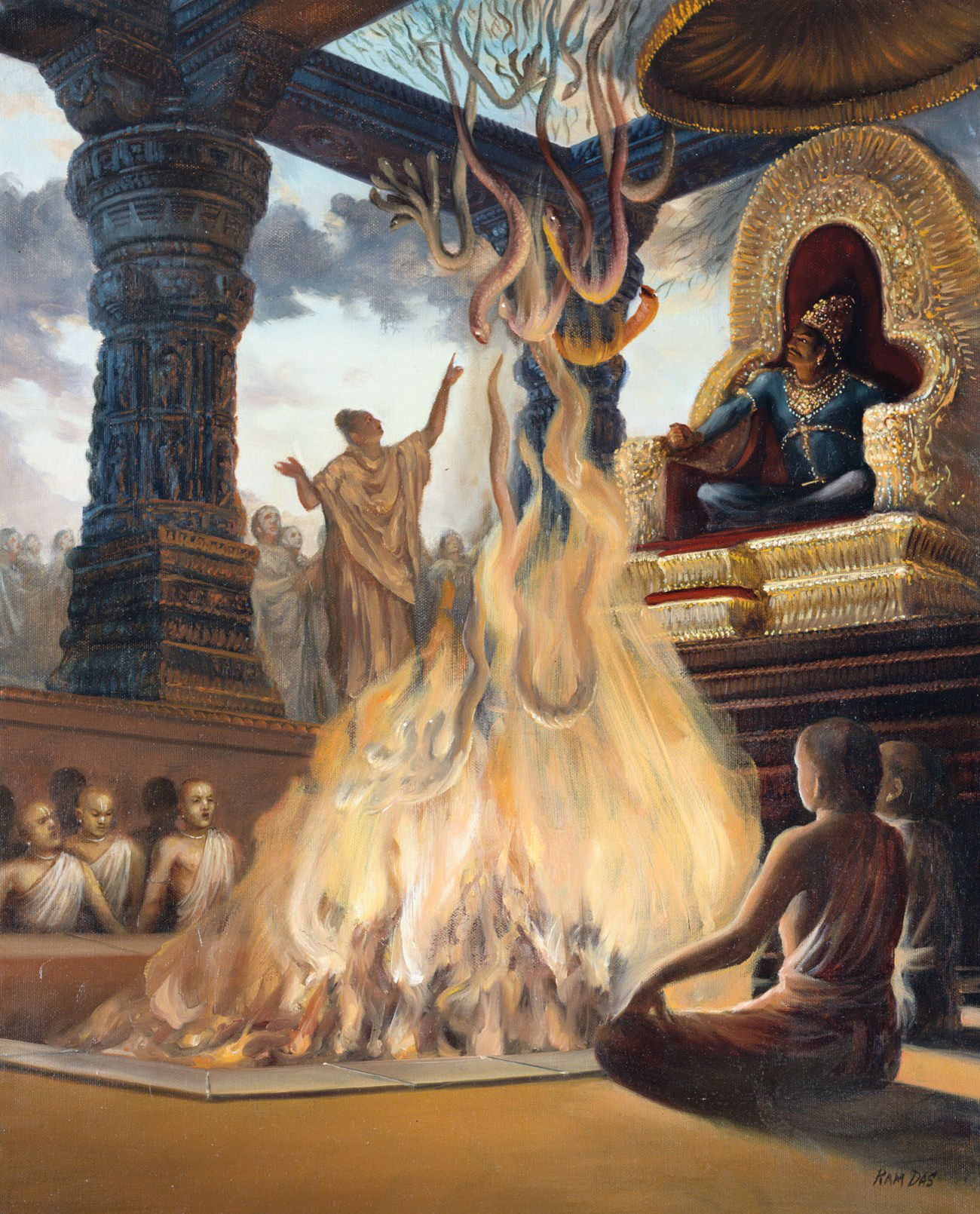

Hari, the imperishable lord, is always to be contemplated upon by those who meditate on him. Without him staying at Dvaraka, the Ocean flooded the City of Dvaraka.
– Agni Purana 15.6
Agni said :-
I am describing the Avatar of Vishnu as Buddha, by reading and hearing which one gets wealth. Once in the battle between devas and asuras, Devas (Gods) were defeated by the Daityas (demons).
They sought refuge in the Lord saying, “Protect us! Protect us!”.
He (Lord Vishnu), who is of the form of illusory delusion became the Son of Śuddhodana (Gautama).
He confused those demons. Those, who had abandoned the path laid down in the Vedas, became the Bauddhas and from them others who had abandoned the Vedas. He then became the Heretic and made the Demons as Confused Heretics. Thus the Heretics came into being devoid of vedic dharmas, making them power-less.
– Agni Purana 16.1 – 4
Kalki, as the son of Vishnu-yasa, having Yajnavalkya as the priest would destroy the unaryas (tyrants),
Holding the Astra as his Weapon, he would establish moral law in four-fold varnashrama in the suitable manner.
The people would then be in the path of righteousness in all the stages of life.
Hari, after discarding the form of Kalki, would go to heaven.
Then would come the Krita-yuga (Golden Age), as before.
– Agni Purana 16.8 – 10
Agni said :-
I will now describe the benefits of erecting the Temples of The Gods.
One who is desirous of constructing the Temples of Gods gets freed from sins incurred in thousand births.
– Agni Purana 38.1
One who builds One Temple goes to Svarga.
One who builds Three Temples goes to the Realm of Brahma.
The builder of Five Temples reaches the Kailasa Realm of Sambhu (Lord Shiva).
And by building Eight Temples, one reaches in the Vaikuntha Realm of Hari (Lord Vishnu).
– Agni Purana 38.8
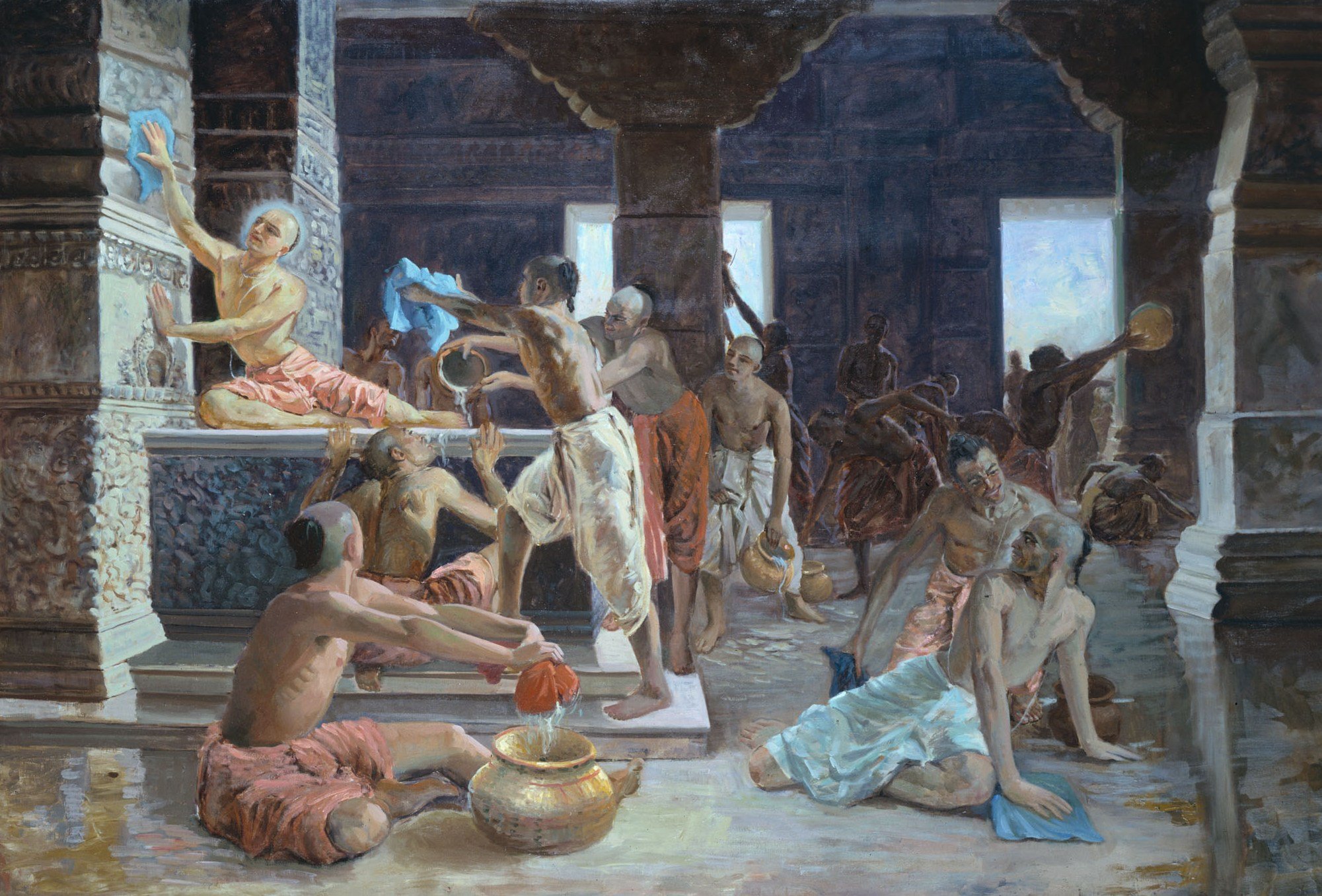
He who builds a Temple for Vishnu, Rudra, Surya or the Devi acquires fame.
What is the use of the riches, wealth and gold for an atheist person?
If one does not want a Temple for Krishna to be built with his wealth and if one’s wealth could not be enjoyed by brahmanas, devas or his relatives, then his acquisition of Wealth… is Useless. As death is certain for a man, so also the destruction of useless wealth.
One who does not spend his riches for Charities or for Temples is stupid and is being bound even while alive, while the riches are flickery.
Is there any merit in being the “King of Wealth” acquired either accidentally or by one’s effort, if it is not spent for Religion, Fame or for Charity?
– Agni Purana 38.21 – 25
One who builds a temple goes to Heaven and never goes to Hell.
Having elevated a hundred of his ancestors, he conveys them to the World of Vishnu (Vaikuntha).
Yama said to his servants:
Those men who build Temples of Gods and adore the murtis are not to be brought to Hell. Only bring them to my view, who have not built any Temples. Move around in the befitting way and execute my directive!
– Agni Purana 38.34 – 36
Construction of Temple from Agni Purana :- https://www.wisdomlib.org/hinduism/book/the-agni-purana/d/doc1083130.html
A Linga made of cloth is worshiped for the sake of wealth. It is known as temporal.
The Linga made of earth or soil is either burnt or half burnt of which the former is better.
Then, A Linga made of Wood is meritorious.
A Linga made of Stone is more meritorious than that made of Wood.
But that made of Pearl is more meritorious than that of Stone.
Then, more merit-worthy are the Lingas made of Iron, and Gold.
The Lingas made of silver, copper and brass yield enjoyment and release from bondage.
The Lingas made of red lead and mercury are excellent and confer enjoyment and release from bondage.
– Agni Purana 54.3 – 5
Hara (Lord Shiva) should be worshiped everywhere.
The worship gets completed only by the worship of the Linga.
A Linga made of stone or wood should be of a cubit length.
– Agni Purana 54.7
The Continent of Bharata extends to one thousand yojanas from north to south.
There are nine divisions of the Bharata lying around the central part.
The Kirātas (tribal groups) are in The East.
The Yavanas (foreigners) are in The West.
The Brahmanas and others devoted to the Vedas and smrtis are in the central part.
The rivers rise from the Pāriyātra Mountains.
Narmadā and other rivers flow from the Vindhya.
Tāpī, Payoṣṇikā, Godāvarī, Bhīmarathī and Krishnaveni and others flow from the Sahya Mountains.
The rivers Krtamala and others flow from the Malaya Mountains.
The rivers Trisāmā and others originate from the Mahendra Mountain.
The rivers Kumāra and others rise from Śuktimat mountain.
The river Candrabhāgā rises from the Himālaya Mountains.
The countries Kuru and Panchala and the Madhya-desha are situated in the Western Part.
– Agni Purana 118.5 – 8
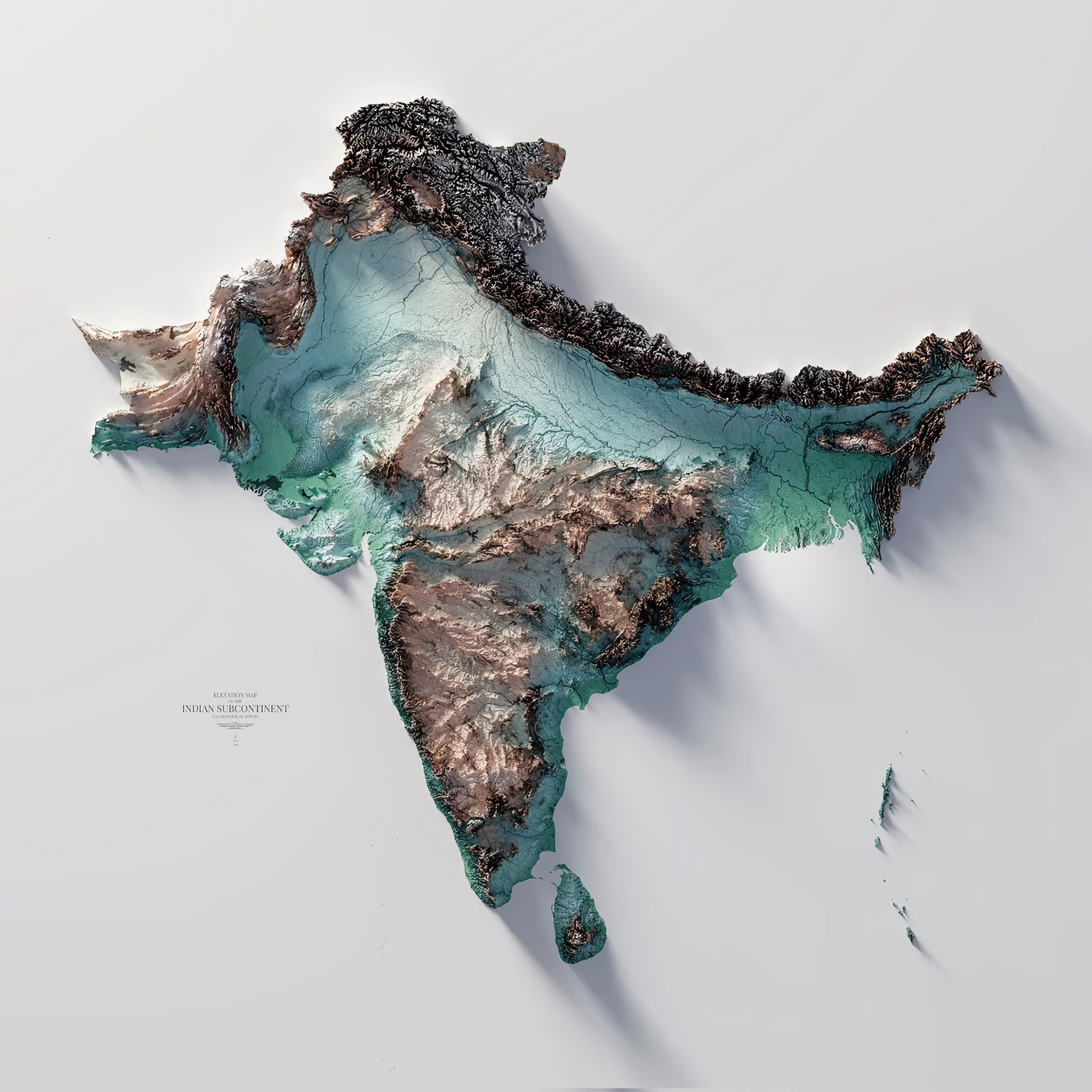
One should not enter a house not having a door.
One should not change the color of their face (in artificial ways).
One should not interrupt in the midst of a conversation.
One should not wear other’s garments.
One should always say good. One should never utter that which does not please others.
A seat made of palasha (wood) is prohibited. One should move in the Shelter of Gods.
– Agni Purana 155.19 – 20
One should refrain from abusing the Scriptures, the King, the Sages and the Gods.
A woman should not be envious (jealous) of Other Women, or avoid having faith.
– Agni Purana 155.29
The killing of a brahmana, drinking of wine, stealing and copulating with the teacher’s wife are said to be Great Sins.
The association with such people, pleasure in saying untruth, laziness in a king, speaking ill of the guru, are equivalent to the killing of a brahmana.
Neglecting the Vedas, censuring the Vedas, bearing false witness, backstabbing a friend, eating forbidden food are the six equivalents to the drinking of wine.
The stealing of the entrusted such as a man, horse, silver, land, gems like diamond are remembered to be equivalent to the stealing of gold.
– Agni Purana 168.24 – 27
An obedient Prince should be engaged in all posts of authority.
The King should avoid hunting, drinking and playing dice — all that destroys the kingdom.
The King should also avoid sleeping during the day-time, strolling about idly and abusive language.
He should also leave off censuring, cruel infliction of punishment and extravagance.
The destruction of mines, neglecting the care of the fort etc. and scattering wealth are said to be extravagance.
A gift that is made to an unworthy person at an inappropriate place and time and engaging in unworthy acts are said to be extravagance.
The King should avoid passion, anger, haughtiness, pride, greed and arrogance.
Then he should win the love of citizens after having first controlled his royal servants.
Then he, the King, should subjugate his external enemies. The external enemies are of three kinds —
Those belonging to the same clan,
those having enmity from the period of the ancestors
and those who have enmity on account of some particular reason.
Among these three each preceding one is greater than the succeeding one.
– Agni Purana 225.4 – 9
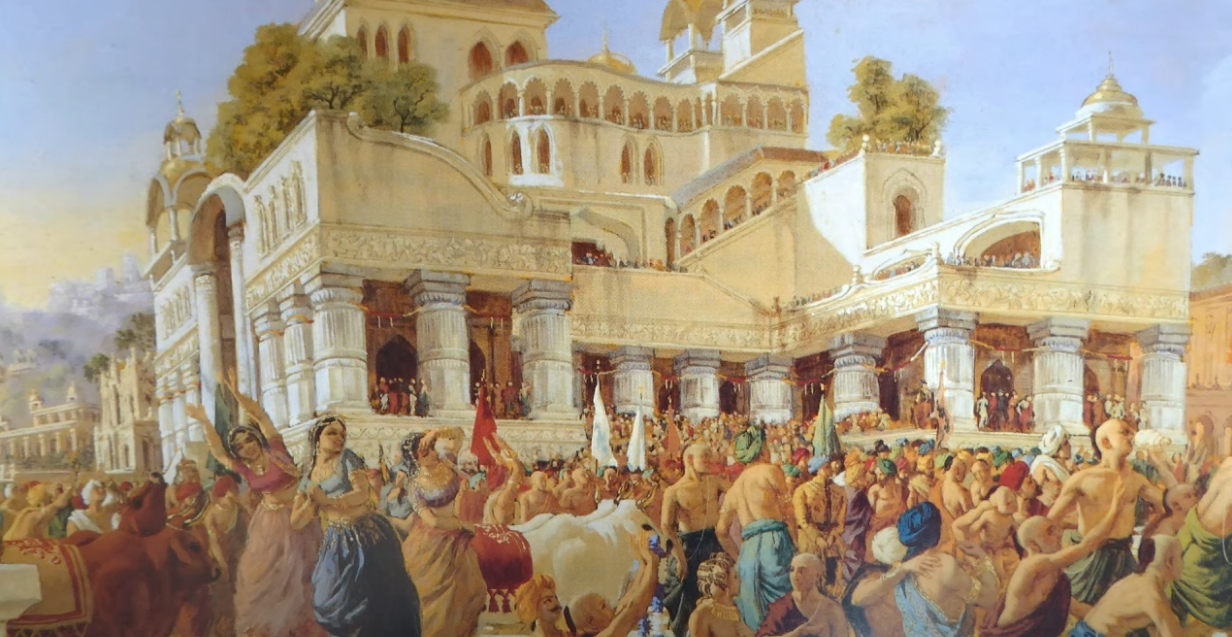
If a person abuses the sick and men having defective organs, by means of lampoons, whether true or untrue or otherwise, he should be fined thirteen and a half panas. The King should levy a fine of twenty-five panas on the rude person that abuses with rude words like “I slept with your sister and mother”.
– Agni Purana 258.1
The highest sāhasa (punishment) is for offences vilifying and harassing the brahmanas, the King or The Gods.
Middle sāhasa is for abusing one’s own relatives and the members of the village assembly
And the first sāhasa is for speaking ill of one’s own village or country.
– Agni Purana 258.8
Lord Vishnu is stationed in the east bearing the disc.
Lord Hari is stationed in the south bearing the mace.
Vishnu remains in the west bearing the bow.
Vishnu is stationed to my north bearing the sword.
Lord Hrisikesha is in the angular points and Lord Janārdana in the inter-spaces.
Hari is stationed on the earth in the form of a Tortoise (Kurma) and Lord Narasimha is above me.
This sharp-edged and stainless Sudarshana Disc of Vishnu revolves. His garland of rays is imperceivable.
“May you destroy the evil spirits and those who wander in the night.”
His mace has the lustre of the flames given out by the Sun.
It is capable of destroying the demons, goblins and spirits.
– Agni Purana 270.3 – 6
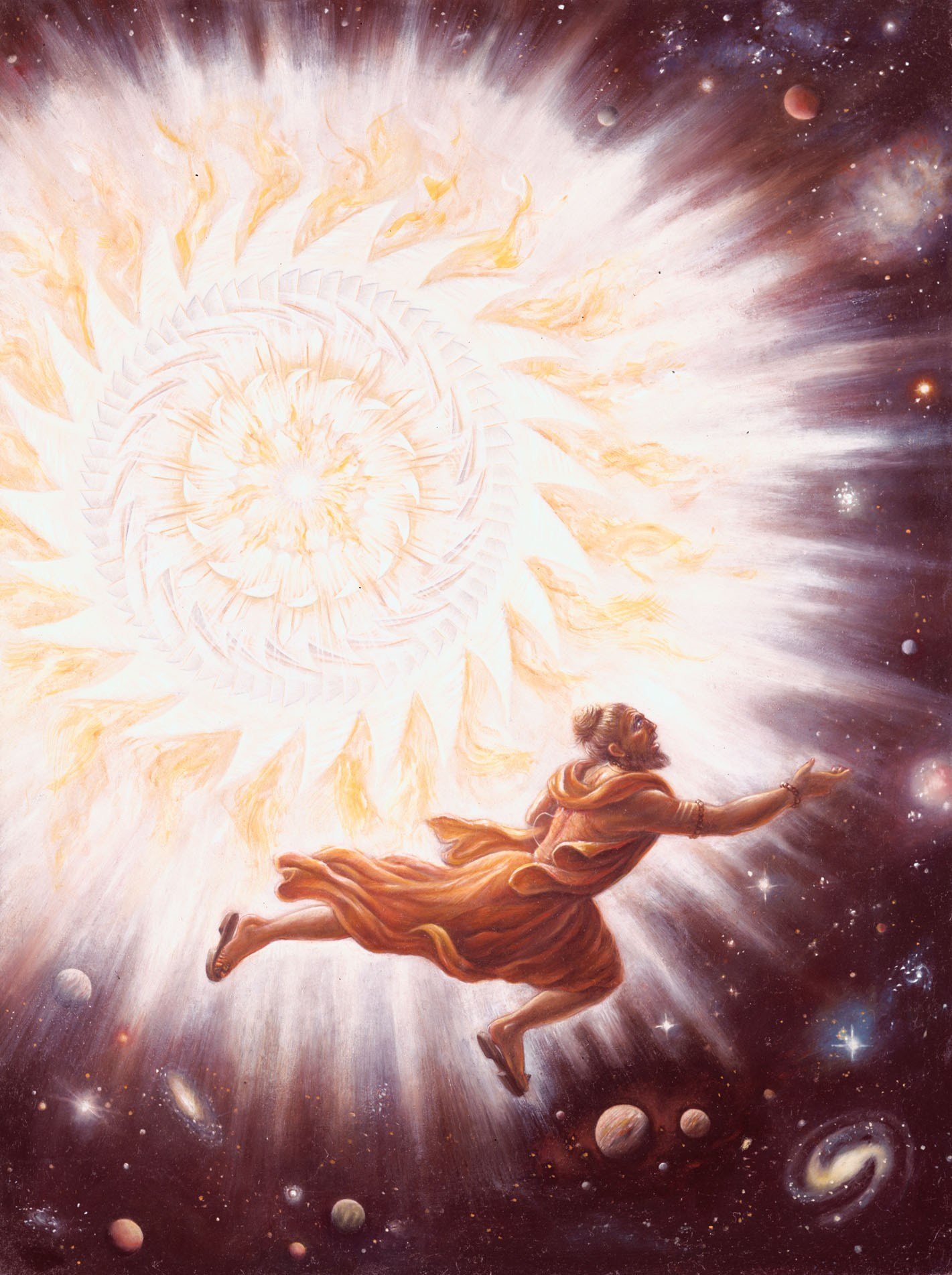
The purity of food is for the sake of digestion.
A good digestion is the root cause of the Strength of Men.
– Agni Purana 281.24b
O Skanda! The formula ‘Om Namah Sivaya’ (Obeisances to Lord Shiva) is capable of accomplishing all things. These syllables are commended in the Vedas. The syllables are commended in the world. Śambhu (Lord Shiva) is present at the end of ‘Om’ like the seed of a fig tree as a seal. It is known that ‘Om Namah Sivaya’ is the designation of Īśāna and others in order. One would acquire the collection of formulae by repeating the syllables. ‘Oṃ Namah Śivaya’ is the excellent formula!
– Agni Purana 327.7b – 10a
Chapter 336 to Chapter 367 of Agni Purana contains Sanskrit Grammar and Phonetics
Description of Puru-vansh and Anga-vansh :-
https://www.wisdomlib.org/hinduism/book/the-agni-purana/d/doc1083507.html
https://www.wisdomlib.org/hinduism/book/the-agni-purana/d/doc1083506.html
Condensed Gita of Agni Purana :-
https://www.wisdomlib.org/hinduism/book/the-agni-purana/d/doc1083611.html
Names of Sixty Years of Hindu Cycle :-https://www.wisdomlib.org/hinduism/book/the-agni-purana/d/doc1083369.html
DISCLAIMER: The author is solely responsible for the views expressed in this article. The author carries the responsibility for citing and/or licensing of images utilized within the text.
